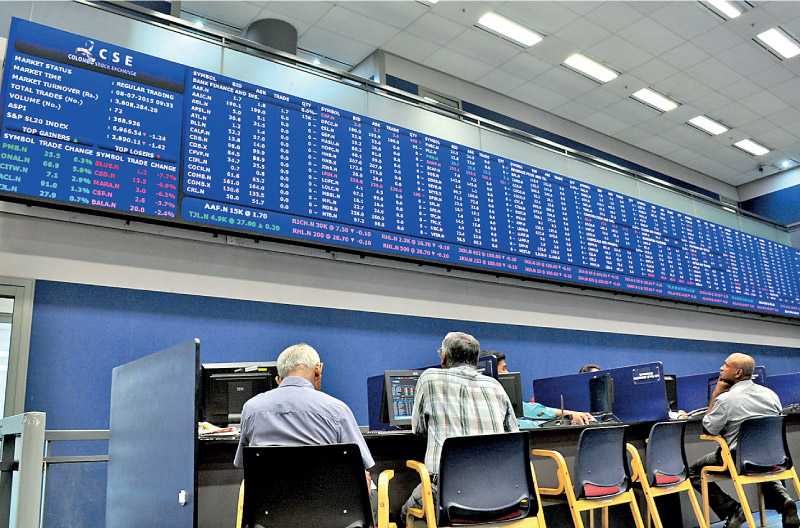Saturday Feb 14, 2026
Saturday Feb 14, 2026
Monday, 15 February 2021 00:00 - - {{hitsCtrl.values.hits}}

By Softlogic Stockbrokers
The dawn of the New Year began with markets being viewed as ‘exciting’ as retailers battled over targeted stocks with the expectation of stock splits. Stock prices continued to rally as short-term traders anticipated further upside.
They were right – but the optimism lasted only for a month. On 11 February, the Colombo Stock Market experienced its worst decline after March 2020, but bounced back very strongly the next day.
During the sudden but short-lived collapse, many investors experienced their portfolios dropping by almost 50%. The panic of losing further prompted investors to keep hitting the sell button which created a fleeting, yet ‘Black’ Thursday (11th). Despite its biggest fall, the market rebounded very strongly on Friday (12th) with the assurance provided by SEC and the State Minister for Money and Capital Markets. This crash and subsequent rally resulted in three different outcomes – investors that panicked and sold off their positions incurred significant capital losses while the investors that didn’t embark on the drastic selling spree saw their portfolios bouncing back to pre-collapse levels. Another group of active investors managed to make day returns exploiting on the dip and the immediate recovery.
The fall on Thursday was the worst decline new retailers have faced recently. However, we believe it will make them more mature to approach the market with an understanding that market declines are surprising and unexpected. It also gives them an added perception that even declines are opportunities for a set of investors to grab on to stocks which are fundamentally strong and would yield returns even in the ‘darkest’ of times.
Many new retail investors have limited insight into how much risk they can absorb and therefore sudden market crashes of this nature would result in mental stress leading to extreme decisions. Our recommendation is that new investors stay away from trading on excess margins which in turn would give them the confidence to hold on to their portfolio during down time as well as buying power to capitalise on panic selling. Risk management is crucial to survive any market crash as the event maybe unpredictable, but the occurrence is inevitable.
With yields in fixed income markets at historically low levels and excess liquidity slushing around, the investment thesis for the stock market clearly stands out. Earnings season has been supportive of the recovery narrative, with local manufacturing and export-oriented companies continuing to post exponential growth in earnings on a year-on-year basis.
Meanwhile, CBSL has assured investors of their long-term plan for loose monetary conditions and low rates. Finally, the State Minister for Money and Capital Markets appears to be determined to push through the market re-rating which had fallen for a couple of years.